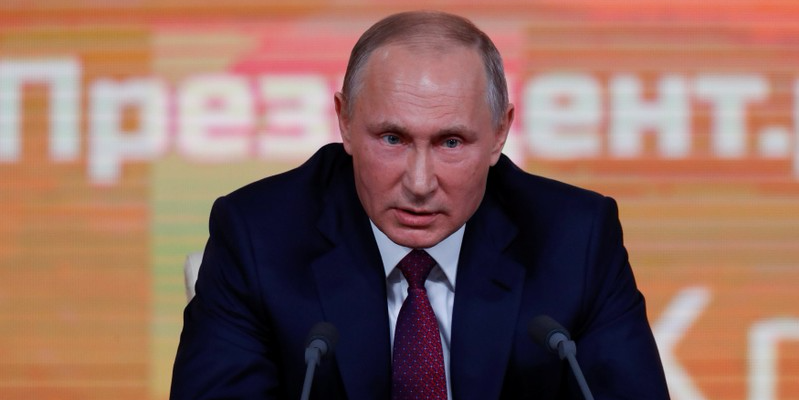- Pro-Kremlin trolls targeted British MPs on Twitter, a security expert has found.
- Atlantic Council researcher Ben Nimmo said this constituted a “targeted attempt to influence British democratic debate.”
- Nimmo’s findings come amid fears that Russia attempted to meddle in the EU referendum.
Pro-Kremlin Twitter accounts have trolled British MPs who criticised Russia, a digital security expert has found.
These accounts attacked MPs who criticised Russia-funded network RT and suggested that the Kremlin has meddled in UK democracy, Ben Nimmo, an information defence and digital forensics research fellow at the US think tank Atlantic Council, wrote on Thursday.
While many of the tweets didn’t gain much traction in the form of likes and retweets, it nevertheless represented “a targeted attempt to influence British democratic debate,” Nimmo said. He explained:
“The pro-Kremlin accounts we found account for only a small proportion of the abusive messages sent to MPs, and to journalists who reported on them; the great majority appear to come from genuine, and genuinely disgruntled, British voters.
“However, these pro-Kremlin, and potentially troll-factory, accounts directly targeted British MPs. Their behavior, therefore, constitutes a targeted attempt to influence British democratic debate as it happened.”
The examples below show tweets by @iamjohnsmith and @FXdestination, two accounts that Nimmo said “strongly resemble” troll-factory accounts, to British MPs Tom Brake, David Gauke, and Prime Minister Theresa May.
https://twitter.com/iamjohnsmith/status/935930740172259330?ref_src=twsrc%5Etfwhttps://twitter.com/FXdestination/status/934095098744332288?ref_src=twsrc%5Etfwhttps://twitter.com/iamjohnsmith/status/869643833528782848?ref_src=twsrc%5Etfw
How to identify a pro-Kremlin troll
According to Nimmo, a way to tell whether an account is part of a pro-Kremlin troll factory is to see what they tweet about controversial issues involving Russia.
He told Business Insider: "If you find an account which has been posting obsessively about Crimea in March 2014, MH17 in July 2014, Turkey in November 2015, the doping scandal in the last couple of months, [and] the White Helmets at the end of 2016 during the siege of Aleppo, it ticks all the boxes where it is following the Kremlin propaganda line. That is definitely a pro-Kremlin propaganda account."
Nimmo warned, however, that it was getting increasingly difficult to tell whether a social media account is part of a troll factory. The data points that social media companies rely on to identify users - such as phone numbers and location - can all be forged through burner phones and VPN networks, he said.
"Even the platforms themselves are not set up to be able to dig out exactly where their users genuinely are," he said. But even if they could be identified, Nimmo said social media firms are reluctant to do so.
He said: "I think, philosophically, they would be opposed to the idea of themselves being able to dig out where their users are. Twitter is very strongly from the kind of the free speech community, and in 2011, Facebook and Twitter were hailed as the voices of democracy in places like the Arab Spring.
"It would not be in keeping with their basic mentality to want to know exactly where their users are and to be able to share that with the security services. Because if you do that in the UK, you kind of have to do it in Russia, and China, and Saudi, and places where if somebody posts the wrong thing, they go to jail."

Nimmo's research comes as MPs debate Russia's threat to British democracy amid fears that Vladimir Putin's regime may have attempted to meddle in last year's EU referendum.
Shadow Digital Minister Liam Byrne told BI ahead of Thursday's debate that the British government is "asleep at the wheel" while Russia is "driving a coach and horses through the integrity of democracies across the west."
MPs from the UK's Digital, Culture Media, and Sport Committee also plan to meet tech companies in the US next year as part of their investigation into how misinformation is spread and how the phenomenon can be tackled.

